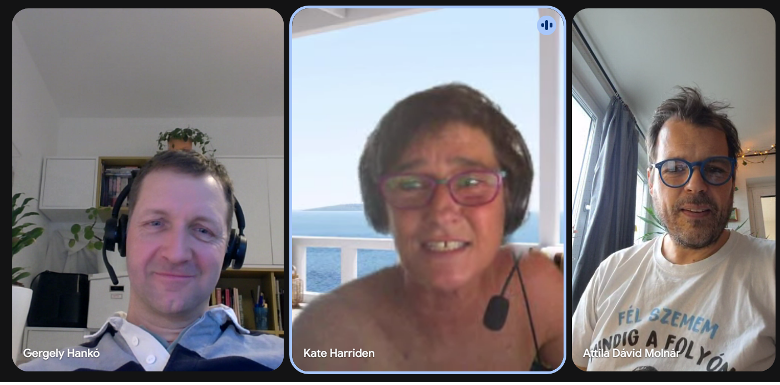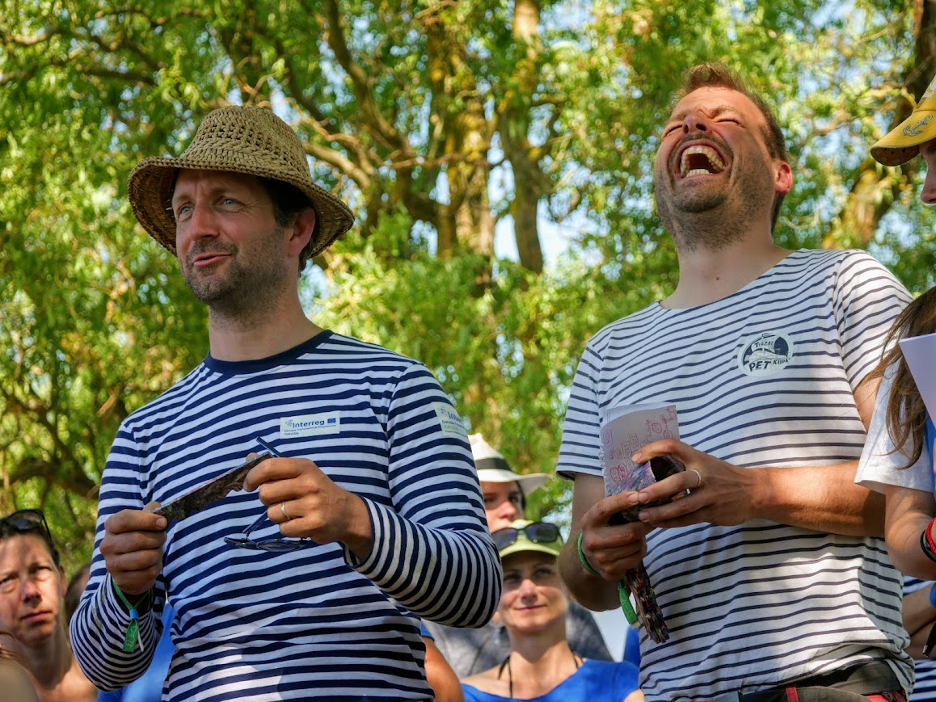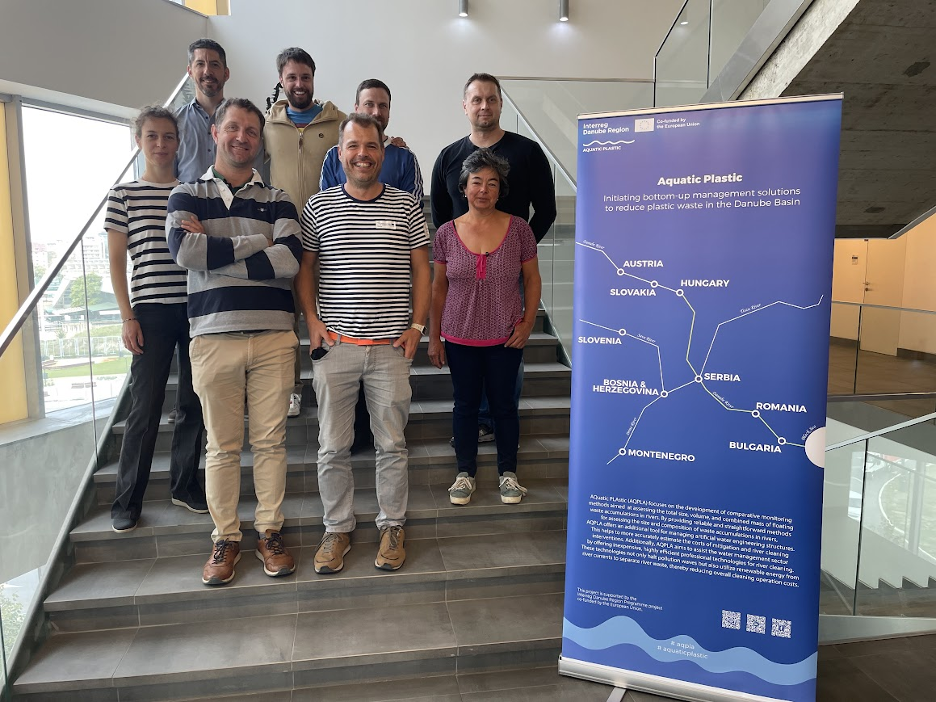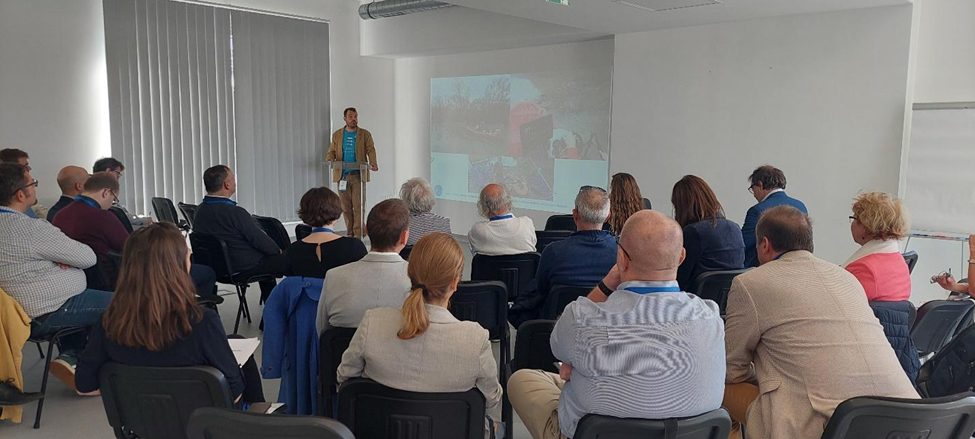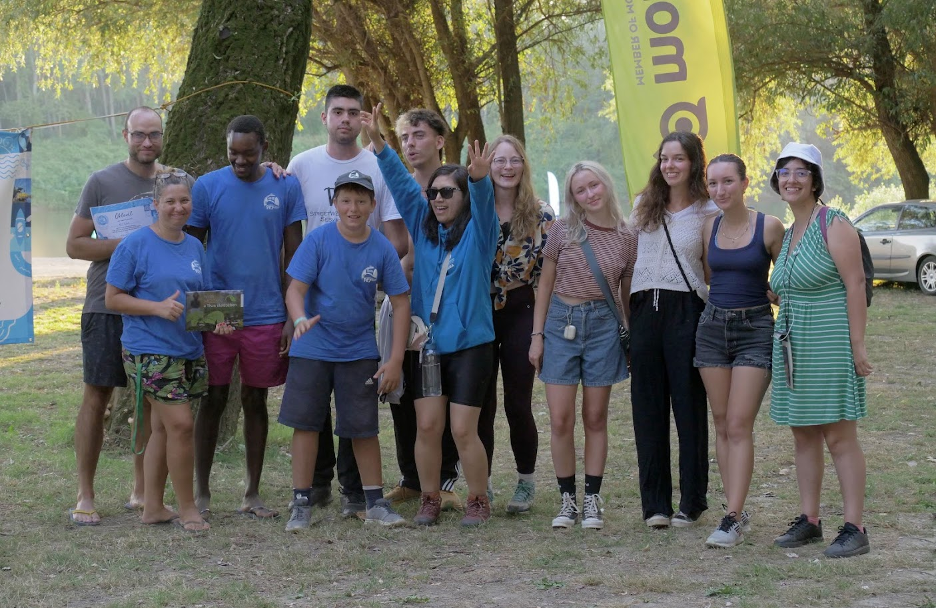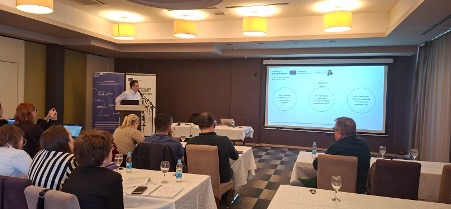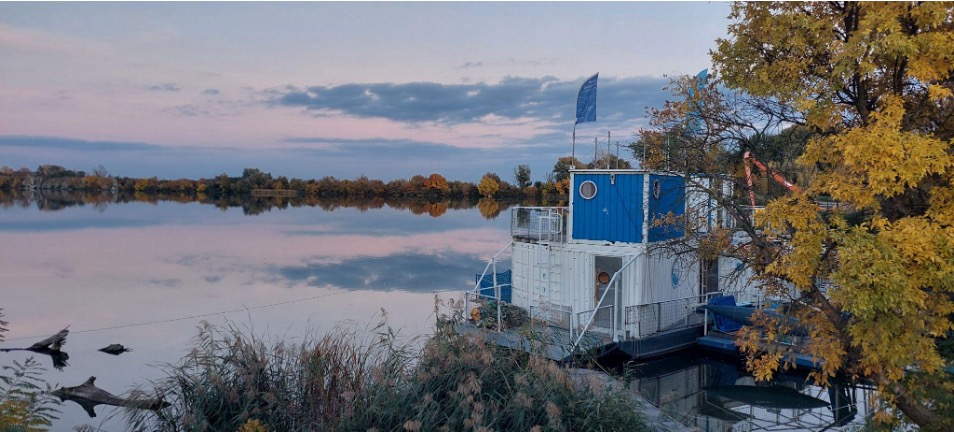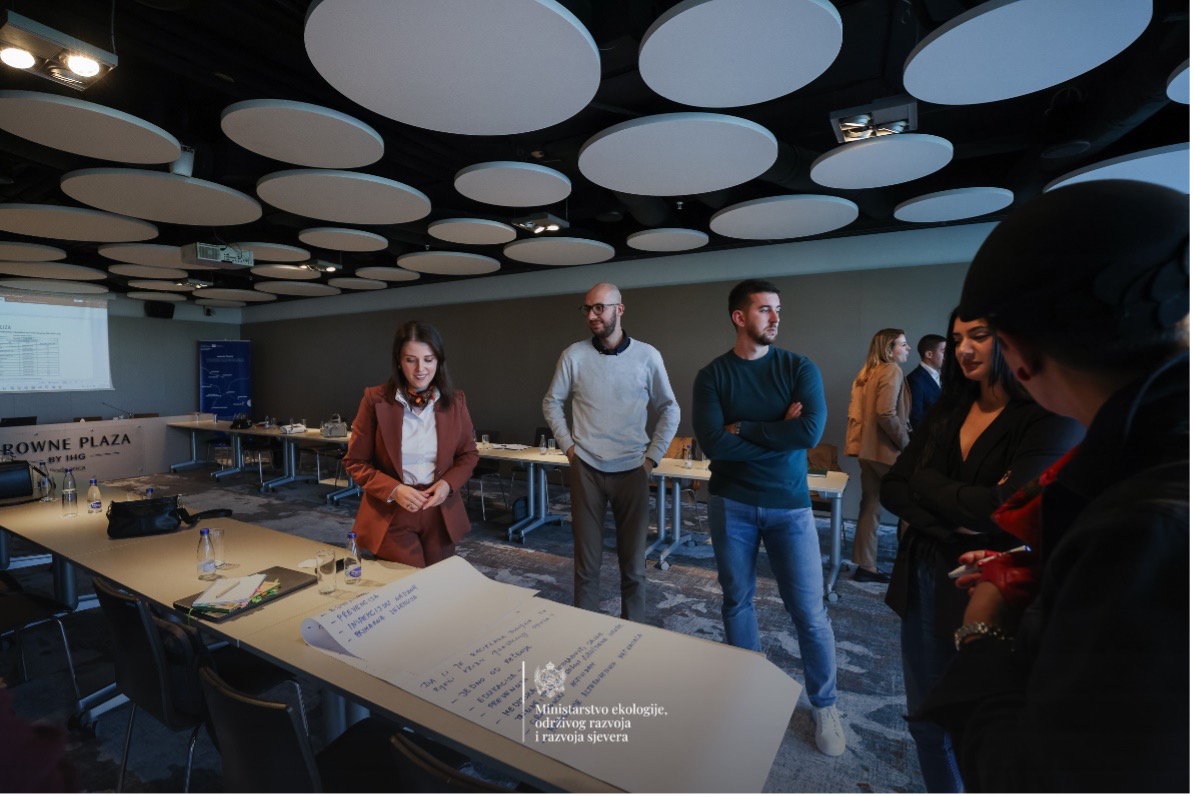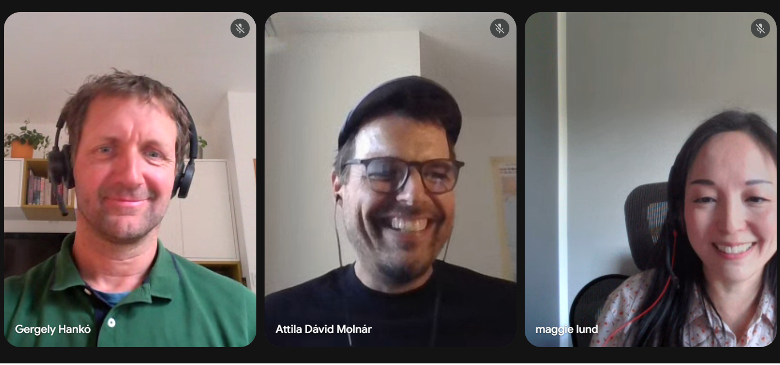
Aquatic Plastic Podcast #7
Maggie Lund: How One Childhood Moment Sparked a Global Environmental Career
In the latest episode of Aquatic Plastic, the podcast dedicated to cleaner rivers and seas, Vice President of DESMI Ro-Clean, Maggie Lund, shares her remarkable journey from a childhood in remote Xinjiang to the front lines of global water-protection efforts.
A Childhood Far From the Sea, Yet Close to Nature
Maggie Lund grew up in Ürümqi—one of the world’s most landlocked cities. Although the sea was thousands of kilometers away, mountain rivers and crystal-clear lakes shaped her early connection to water. As a child, she confronted her first environmental injustice when she told off an adult for littering in the mountains. “I knew it was the right thing to do,” she recalls. That sense of responsibility never left her.
From China to Denmark: A Career Shaped by Climate and Curiosity
After earning a degree in environmental science and later an MBA, Maggie built a career across continents—from Germany to Beijing, from the Netherlands to Denmark—working in clean energy, waste management and global environmental diplomacy.
Her turning point came in 2018 at a conference, where she heard misplaced blame directed at China for global plastic waste problems. The moment motivated her to dive deeper into the plastic crisis. Not long after, she joined The Ocean Cleanup in the Netherlands and later DESMI Ro-Clean, a global leader in marine debris and oil-spill response.
Turning Technology Into Real-World Impact
DESMI Ro-Clean’s mission is simple and urgent: provide practical, robust and scalable solutions to remove pollution from rivers, lakes and oceans. Their technologies—from guiding booms to automated waste conveyors—work 24/7 in some of the world’s most polluted waterways.
In India alone, more than 30 DESMI systems are already operating, collecting 6–10 tons of waste per day at key locations. Maggie emphasizes that every river is different: “There is no one-size-fits-all solution. Every system must be tailored to the river’s seasonality, flow and local conditions.”
Why Plastic Pollution Is Worse Than Oil
“Oil is natural—it breaks down in a few years. Plastic stays for 200 to 500 years. In many ways, plastic pollution is worse.”
While oil spills trigger immediate global response, plastic pollution grows slowly and silently until it becomes “normal.” For Maggie, shifting public awareness is as important as deploying technology.
Looking Ahead: Smarter, Tougher, More Scalable Solutions
Despite being a small team, DESMI Ro-Clean continues to refine its technologies and test new ideas in real environments. “We only sell what is proven in the field,” Maggie says. New innovations are already in development, focusing on durability, adaptability and cost-efficiency.
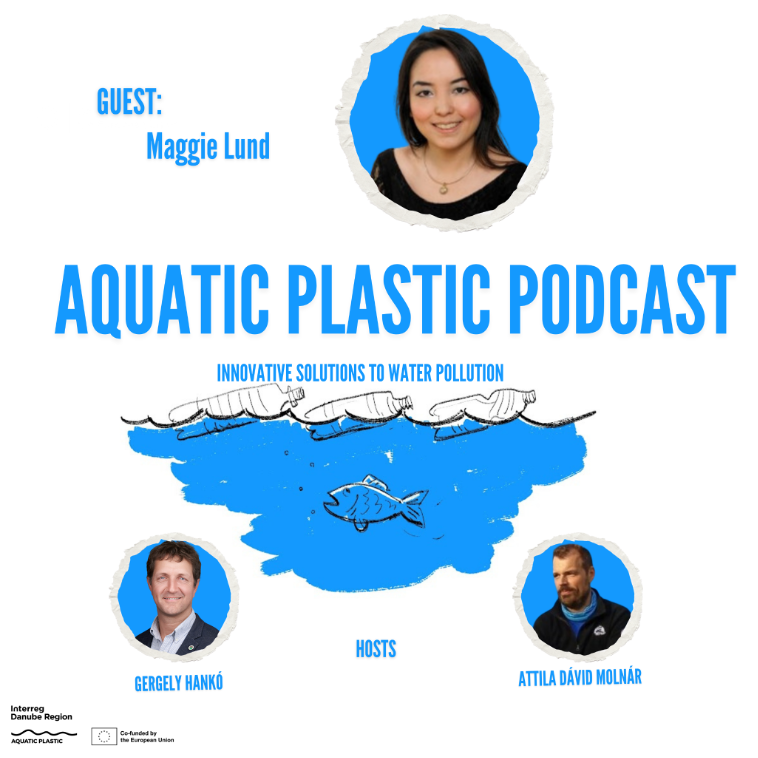
About Aquatic Plastic
Aquatic Plastic is brought to you by the Interreg Danube Region Programme, co-funded by the European Union. Operating within the world's most international river basin, the Aquatic Plastic Danube-Region Interreg project unites 33 organizations spanning 10 countries. Together, we are executing 19 pilot actions and developing 8 solutions aimed at preventing, reducing, and managing plastic pollution in the natural waterways of the Danube River Basin. How do we navigate through such diverse borders? Explore further by delving into our report, and begin following our journey on LinkedIn and other social media platforms.
CHAPTERS
00:00 – Intro: Cleaning Rivers, Changing Mindsets
The hosts open Episode 7 of Aquatic Plastic, introducing the theme: how technology, passion and global cooperation can turn the tide on plastic pollution.
00:54 – Guest Introduction: Who Is Maggie Lund?
Listeners meet Maggie Lund, Vice President of DESMI Ro-Clean—an environmental engineer working on practical solutions for cleaning rivers, lakes and oceans worldwide.
“Plastic, if you don’t do anything, stays for 200–500 years.”
03:07 – A Global Environmental Journey
From China’s Xinjiang region to Denmark, Germany and the Netherlands, Maggie’s international career spans environmental science, clean energy and innovative water technologies.
04:51 – Childhood Roots: A Life Shaped by Nature
Maggie recalls growing up among mountains, rivers and vast landscapes in Ürümqi—and the moment as a child when she confronted an adult for littering.
“I knew it was the right thing to do.”
08:10 – Climate Change & Changing Rivers
Reflecting on how her home region has transformed, Maggie speaks about shrinking glaciers, extreme weather and the growing pressure on fragile ecosystems.
16:56 – Turning Point: Discovering the Plastic Crisis
A tense moment at a Copenhagen conference pushed Maggie to investigate the global plastic problem and eventually join The Ocean Cleanup.
“I didn’t understand why they pointed the finger at China—so I decided to act.”
23:10 – Real-World Solutions: When One Tool Isn’t Enough
Maggie explains why a single technology cannot solve river pollution. She shares insights on DESMI’s approach: simple, robust systems tailored to each river’s behavior.
27:34 – Regulation vs. Reality: Why Plastic Is Harder Than Oil
Oil-spill response is backed by strong regulation—plastic cleanup is not. Maggie highlights the need for global agreements, funding and long-term responsibility.
40:13 – Collecting Waste at Scale
With 50+ projects worldwide (30+ in India), DESMI systems can collect 6–10 tons of waste per day. But most waste is mixed, seasonal, and difficult to track—underscoring the need for better data and local cooperation.
53:29 – Collaboration & Networking: Building a Global Cleanup Community
Maggie discusses the importance of partnerships—with governments, NGOs, hotels, engineers, and grassroots groups. Customized solutions and constant communication are key.
57:21 – Looking Ahead: Innovation with Purpose
DESMI continues improving its technologies and testing new ideas in real environments. Maggie shares her hopes for scalable, long-lasting solutions driven by both business and regulation.
01:03:04 – Closing & Game Time
A light-hearted word-association game closes the conversation, followed by a heartfelt message: cooperation, curiosity and persistence can help keep the world’s rivers and seas clean.
News & Events
Read the most recent updates and explore the upcoming events.

